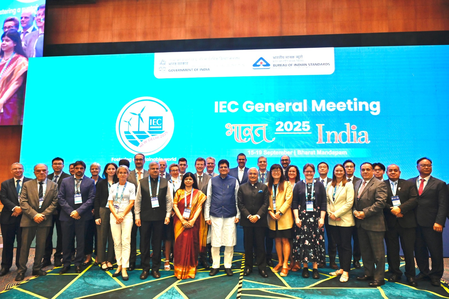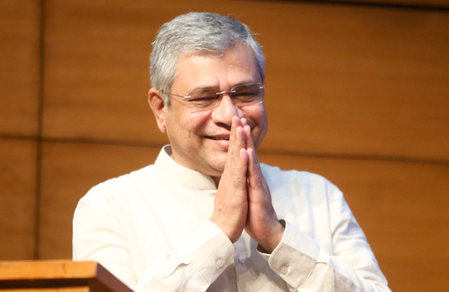
New Delhi, Sep 15 (IANS) India is very focused on sustainability as the pillar of growth, as the country believes in learning from the developed world — particularly from the high-quality standards that have helped economies across the globe to grow and prosper, Commerce and Industry Minister Piyush Goyal said here on Monday.
Goyal emphasised that such high standards are central to India’s own growth as the world’s fastest-growing large economy.
“Sustainability is non-negotiable in India’s growth journey,” he said in his address at the inauguration of the IEC (International Electrotechnical Commission) General Meeting and Exhibition, organised by the Bureau of Indian Standards (BIS).
The minister underlined that good standards are the need of the hour for a developing country like India, as they provide the foundation for growth both at the national level and for contributing to international progress.
“Harmonising global standards not only enhances product quality but also facilitates free trade, opens markets, and promotes wider international collaboration,” he said.
Such initiatives will help expand open markets, encourage free and fair trade, and provide a level playing field for businesses, he added.
Referring to the participation of international experts at the event, he expressed confidence that they would delve into new ideas and explore ways forward to promote the adoption of standards.
“With many experts coming from engineering backgrounds, the deliberations at the exhibition would enrich the global conversation on standards,” said Goyal.
He reiterated that the promotion of high-quality standards is essential for ensuring consumer welfare, driving demand, and sustaining long-term growth.
The country is deeply committed to the principles of a circular economy, reducing waste, and conserving resources, and sees these principles as central to its long-term development journey.
“Standards play a critical role in building India’s future. India has thousands of technical bodies and committees that work on setting standards across different sectors. In the early years, the focus was more on creating standards and allowing their voluntary implementation. Over time, however, experience taught that stricter adherence to standards was necessary, leading to the introduction of Quality Control Orders (QCOs) in critical areas,” the minister stressed.
He cited the example of QCOs for toys, which have had a transformative effect by putting an end to substandard products in the market, encouraging the manufacturing of high-quality toys in India, and ensuring the safety of children.
Referring to Prime Minister Narendra Modi’s vision of “Zero Defect, Zero Effect”, Goyal said that the government is working in mission mode to foster a nationwide culture of quality and sustainability.
–IANS
na/vd




